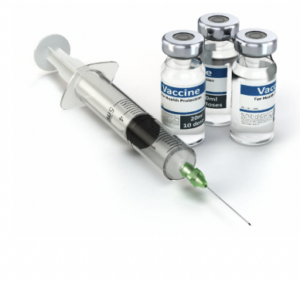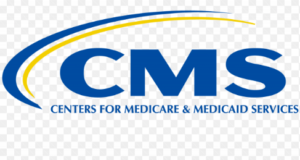- Social Factors Help Explain Worse Cardiovascular Health among Adults in Rural Vs. Urban Communities
- Reducing Barriers to Participation in Population-Based Total Cost of Care (PB-TCOC) Models and Supporting Primary and Specialty Care Transformation: Request for Input
- Secretary Kennedy Renews Public Health Emergency Declaration to Address National Opioid Crisis
- 2025 Marketplace Integrity and Affordability Proposed Rule
- Rural America Faces Growing Shortage of Eye Surgeons
- NRHA Continues Partnership to Advance Rural Oral Health
- Comments Requested on Mobile Crisis Team Services: An Implementation Toolkit Draft
- Q&A: What Are the Challenges and Opportunities of Small-Town Philanthropy?
- HRSA Administrator Carole Johnson, Joined by Co-Chair of the Congressional Black Maternal Health Caucus Congresswoman Lauren Underwood, Announces New Funding, Policy Action, and Report to Mark Landmark Year of HRSA's Enhancing Maternal Health Initiative
- Biden-Harris Administration Announces $60 Million Investment for Adding Early Morning, Night, and Weekend Hours at Community Health Centers
- Volunteer Opportunity for HUD's Office of Housing Counseling Tribe and TDHE Certification Exam
- Who Needs Dry January More: Rural or Urban Drinkers?
- Rural Families Have 'Critical' Need for More Hospice, Respite Care
- Rural Telehealth Sees More Policy Wins, but Only Short-Term
- States Help Child Care Centers Expand in Bid To Create More Slots, Lower Prices
Health Center One Step Closer to Funding for New Dental Clinic
 Laurel Health Centers in Mansfield was notified that Sen. John Fetterman has advanced a one-million-dollar Congressional directed spending request to the Appropriations Committee for review on their behalf. If approved, this funding will allow Laurel Health to construct a new full-service dental clinic to provide essential dental services to patients of all ages in northcentral Pennsylvania. Families in rural areas often limit or go without access to regular dental care due to a lack of dental insurance and the high costs associated with routine cleanings and treatment. For the past several years, Laurel Health has been working diligently to bring comprehensive, affordable dental services to more underserved communities and is excited to take the next step in that journey.
Laurel Health Centers in Mansfield was notified that Sen. John Fetterman has advanced a one-million-dollar Congressional directed spending request to the Appropriations Committee for review on their behalf. If approved, this funding will allow Laurel Health to construct a new full-service dental clinic to provide essential dental services to patients of all ages in northcentral Pennsylvania. Families in rural areas often limit or go without access to regular dental care due to a lack of dental insurance and the high costs associated with routine cleanings and treatment. For the past several years, Laurel Health has been working diligently to bring comprehensive, affordable dental services to more underserved communities and is excited to take the next step in that journey.
$20 Million Commitment Made to Proposed New Pennsylvania College of Osteopathic Medicine
A college of osteopathic medicine proposed by Indiana University of Pennsylvania has secured a $20 million commitment from its foundation, the largest gift toward the initiative to date. The medical school would be the first osteopathic school of medicine on a public university campus in Pennsylvania. The commitment brings to $23.7 million the amount raised so far for the college, almost a fourth of what is believed to be needed initially, according to the university. In addition, Sen. John Fetterman, D-Braddock, and U.S. Rep. Guy Reschenthaler, R-Jefferson, have announced they are seeking $2 million in community project funds in the federal budget for fiscal year 2025. Public and private funds already directed to the project include $2 million in state government funds announced in January by Senate Majority Leader Joe Pittman, R-Indiana; $1 million from alumnus Rich Caruso in May 2023; $500,000 from IUP’s alumni association in December; and another $150,000 in the 2024 federal budget. Read more.
Black Pennsylvanians 50% Less Likely to Receive Naloxone, Despite Soaring Overdose Deaths
![]() A recent study from the Pennsylvania Department of Health (DOH) has found that Black people who died from opioid overdoses were half as likely as white people to receive the life-saving drug naloxone, otherwise known as Narcan. The study also found that Black overdose deaths in Pennsylvania increased by more than 50% between 2019 and 2021, compared with no change in white overdose deaths. A DOH representative said that similar rises in overdose deaths are being seen across the country, especially among Black, American Indian and Alaska Native populations, but researchers are still investigating what’s behind the spike. Read more.
A recent study from the Pennsylvania Department of Health (DOH) has found that Black people who died from opioid overdoses were half as likely as white people to receive the life-saving drug naloxone, otherwise known as Narcan. The study also found that Black overdose deaths in Pennsylvania increased by more than 50% between 2019 and 2021, compared with no change in white overdose deaths. A DOH representative said that similar rises in overdose deaths are being seen across the country, especially among Black, American Indian and Alaska Native populations, but researchers are still investigating what’s behind the spike. Read more.
Supreme Court Preserves Abortion Pill Access After Tossing Challenge
Why it matters: It’s the court’s biggest abortion-related decision since overturning Roe v. Wade and ensures that mifepristone — one of the most widely used drugs for medication abortions — will remain available. Click here to learn more.
Drug Manufacturers’ Assault on 340B Program Continues
 Two more manufacturers have announced contract pharmacy restrictions (CPRs) on Community Health Centers and a third has tightened them:
Two more manufacturers have announced contract pharmacy restrictions (CPRs) on Community Health Centers and a third has tightened them:
· Alkermes – who makes Vivitrol, an SUD treatment drug that CHCs often prescribe – announced CPRs that will go into effect on July 22. Due to varying payor rules about whether Vivitrol must be dispensed by a regular pharmacy or contract pharmacy, it will soon be impossible for most CHCs to obtain all their Vivitrol at the 340B price.
· Sobi announced CPRs effective July 1, but they should have little impact on CHCs.
· Effective July 1, Bristol Meyers Squibb will require CHCs with a single, designated contract pharmacy site to report data to ESP on that site. This data must be reported within 14 days of the drug being dispensed and include 16 elements for each claim. CHC experts say that meeting these requirements will be an extremely heavy lift, and possibly impossible.
· Sanofi’s policy of treating free-standing CHC-owned pharmacies like contract pharmacies appears to have been adopted by Alkermes, Bausch & Lomb, and Sobi. More information will be forthcoming, but we’re told that health centers should prepare for most of their free-standing pharmacies to lose access to 340B-priced Sanofi, Bausch & Lomb, and Sobi drugs starting July 1, and Alkermes drugs starting July 22.
Maternal and Child Health Stillbirth Prevention Act Passes out of Congress
 The Maternal and Child Health Stillbirth Prevention Act of 2024, HR 4581, passed through both the House and the Senate, and now awaits President Biden’s signature before it becomes law. The bipartisan bill amends the Maternal and Child Health Service Block Grant program to allow states to use those dollars for stillbirth prevention and research activities but does not include additional funding.
The Maternal and Child Health Stillbirth Prevention Act of 2024, HR 4581, passed through both the House and the Senate, and now awaits President Biden’s signature before it becomes law. The bipartisan bill amends the Maternal and Child Health Service Block Grant program to allow states to use those dollars for stillbirth prevention and research activities but does not include additional funding.
Responding to the Primary Care Payment Congressional RFI
 Senators Whitehouse and Cassidy introduced S. 4338, the Pay PCPs Act. The Pay PCPs Act would encourage the Centers for Medicare and Medicaid Services (CMS) to accelerate its existing efforts to support value-based primary care and improve the adequacy of pay for primary care providers in Medicare. This legislation serves as a marker for future primary care legislation and includes a request for information on hybrid payments for primary care providers, risk adjustment criteria, quality measures and services to be included in hybrid models, cost sharing and technical advisory committees. Please send any feedback on the RFI questions to federalpolicy@nachc.org by June 28.
Senators Whitehouse and Cassidy introduced S. 4338, the Pay PCPs Act. The Pay PCPs Act would encourage the Centers for Medicare and Medicaid Services (CMS) to accelerate its existing efforts to support value-based primary care and improve the adequacy of pay for primary care providers in Medicare. This legislation serves as a marker for future primary care legislation and includes a request for information on hybrid payments for primary care providers, risk adjustment criteria, quality measures and services to be included in hybrid models, cost sharing and technical advisory committees. Please send any feedback on the RFI questions to federalpolicy@nachc.org by June 28.
Work Resumes in Pennsylvania to Finalize Rules to Reduce Barriers for Those with Criminal Records to Earn Professional Licenses
State officials are taking another crack at finalizing proposed rules that would make it easier for Pennsylvania residents with criminal records to earn professional licenses in fields ranging from accounting and nursing to cosmetology and real estate. The PA Department of State (DOS), which oversees professional licensure, issued a revised version of the rules this month after an earlier draft was rejected in April by the Independent Regulatory Review Commission (IRRC). IRRC questioned whether the rules adequately protect public health and safety and was concerned, in part, that certain crimes were not listed as being “directly related” to certain professions, thus triggering a closer look from licensing boards. The rules, for example, did not make prior convictions for forgery or identity theft an automatic impediment for people seeking to become state-licensed CPAs. In its latest version, DOS added stronger language emphasizing that licensing boards have a responsibility to consider individual applications for licensure. The language also clarifies that boards can still consider offenses as part of a licensing decision even if they are not listed as “directly related.” The IRRC met this week and approved the updated version. The rules implement Act 53 of 2020, a state law enacted in 2020.
CMS Updates Information on New Hospital Price Transparency Requirements Commencing July 1, 2024
PRISM Study Summary: Preparing Behavioral Health Clinicians for Success and Retention in Rural Safety Net Practices
This study assesses how, among behavioral health clinicians working in rural safety net practices, the amount of exposure to care in rural underserved communities received during training relates to confidence in skills important in their work settings, successes in jobs and communities, and anticipated retention.
This study summary provides a quick overview of the study published by the Journal of Rural Health.

